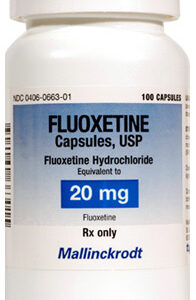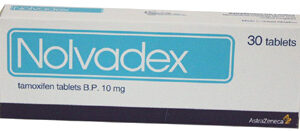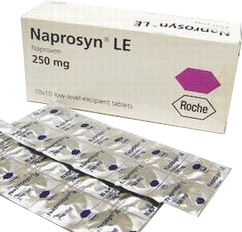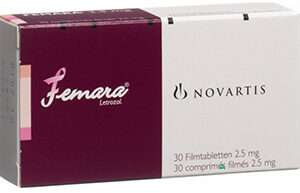Overview
Femara, known generically as letrozole, is an oral non-steroidal aromatase inhibitor used primarily in the treatment of hormonally-responsive breast cancer after surgery. As an integral component in the management of cancer, Femara hinders the synthesis of estrogen, which is vital for the growth of certain types of breast tumors. Femara’s efficacy extends to post-menopausal women, where it has a pivotal role in reducing the risk of cancer recurrence and spread.
Indications and Usage
Femara is chiefly indicated for the adjuvant treatment of postmenopausal women with hormone receptor-positive early breast cancer, as well as for the extended adjuvant treatment of early breast cancer in patients who have received 5 years of adjuvant tamoxifen therapy. Additionally, it is prescribed for the first-line treatment of postmenopausal women with hormone receptor-positive or hormone receptor-unknown locally advanced or metastatic breast cancer, and for the treatment of advanced breast cancer in postmenopausal women with disease progression following antiestrogen therapy.
Dosage and Administration
To combat breast cancer in postmenopausal women, the standard dosage of Femara is 2.5 mg taken once daily. It can be ingested with or without food. Since letrozole is metabolized in the liver, caution and deliberate dose reduction should be considered in patients with severe liver dysfunction. Continuation of treatment should typically be upheld until tumor progression is evident.
Contraindications
Femara is not recommended for use in patients with known hypersensitivity to letrozole or any of its components. It is contraindicated in women who are premenopausal, pregnant, or may become pregnant due to the potential risk for fetal harm. Moreover, it is not advisable for nursing women as it may cause harm to the nursing child.
Warnings and Precautions
Certain warnings and precautions should be thoroughly understood prior to initiating Femara treatment. Bone effects such as osteoporosis and fractures can result due to the decreased estrogen levels. Patients should be monitored for bone mineral density. Femara may also cause cholesterol profiles to change, necessitating careful monitoring. Caution is advised when driving or operating machinery as fatigue, dizziness, and somnolence have been reported in association with Femara usage. Women with severe liver impairment should be given reduced doses under close supervision. Femara should not be co-administered with tamoxifen or medications containing estrogen as they may diminish its pharmacological action.
Adverse Reactions
Common adverse reactions reported during Femara therapy include hot flashes, arthralgia (joint pain), and fatigue. Less frequently encountered effects consist of hypertension, dizziness, somnolence, dyspnea (difficulty breathing), abdominal pain, constipation, diarrhea, indigestion, alopecia (hair loss), anorexia, and peripheral edema (swelling). More severe reactions, although rare, such as thromboembolic events, have also been observed.
Drug Interactions
Letrozole is predominantly metabolized by the cytochrome P450 isozyme CYP2A6, and substances that inhibit or induce this isozyme could potentially alter Femara’s metabolism. Concurrent use of Femara with tamoxifen, other anti-estrogens, or estrogen-containing therapies can impair its effectiveness. Therefore, these combinations should be avoided. Prescription, over-the-counter medications, and herbal supplements all have the potential to interact with Femara, and patients should discuss all concurrent use with a healthcare provider.
Use in Specific Populations
Femara is intended solely for use in postmenopausal women. If a woman becomes pregnant while taking Femara, she should be informed of the potential hazard to the fetus. Due to insufficient data, Femara is not recommended for children or adolescents. Additionally, caution is recommended when administering the drug to patients with severe liver impairment or to those with osteoporosis, as they may encounter heightened risks from the treatment.
Overdosage
In the event of a Femara overdose, signs and symptoms may not be distinct but could include an augmentation of its known adverse reactions. If overdosage occurs, supportive measures should be initiated, with symptomatic treatments being applied as necessary. Since there is no specific antidote, expeditious medical intervention may be critical.
Clinical Pharmacology
Femara reduces the total body production of estrogen by inhibiting the aromatase enzyme, which converts androgenic precursors into estrogen, particularly significant in postmenopausal women as their primary source of estrogen is through this conversion process. Consistent with its role in estrogen biosynthesis suppression, reduced circulating levels of estrogen have been noted in patients administered Femara.
Mechanism of Action
The principle behind Femara’s capacity to impede breast cancer progression lies in its ability to lower estrogen synthesis. As breast cancer in many postmenopausal women is fueled by estrogen, Femara’s action of inhibiting the aromatase enzyme leads to a reduction in tumor volume or delayed progression in cancers responsive to this hormonal manipulation.
Pharmacokinetics
Femara is rapidly and completely absorbed from the gastrointestinal tract, with peak plasma levels occurring within 2 hours post-administration when taken on an empty stomach. Letrozole’s elimination half-life is approximately 2 days, and its excretion is mainly via the kidneys. Moreover, the drug’s bioavailability is not affected by food.
Nonclinical Toxicology
Nonclinical studies in animals have revealed letrozole’s potential for causing fetal harm when administered to pregnant women. While exhaustive nonclinical pharmacological and carcinogenic profiles of letrozole are not definitive in predicting the effects on humans, animal studies provide insights into a drug’s potential risks.
Clinical Studies
Extensive clinical trials have demonstrated Femara’s effectiveness for the extended adjuvant treatment of early breast cancer in postmenopausal women. Additionally, studies have shown significant benefits for Femara over tamoxifen as a first-line treatment for metastatic breast cancer, also revealing superior efficacy in terms of time to progression.
How Supplied/Storage and Handling
Femara tablets are typically dispensed in 2.5 mg strength, provided in bottles with child-resistant caps. Tablets should be kept at a controlled room temperature, shielded from both light and moisture. As with all medications, Femara should be stored safely out of the reach of children.
Patient Counseling Information
Patients prescribed Femara must be informed about the importance of adherence to their dosing regimen and advised about the potential side effects. Discussion of risks in specific populations, the consequences of missed doses, and the drug’s interactions with other substances should be integral to patient counseling. Patients should also be educated on the need to report any new symptoms or significant changes in their health status to their healthcare provider.






Reviews
There are no reviews yet.